EXCLUSIVE: Unraveling the JFK Assassination: Media Coverage and the 2025 File Release
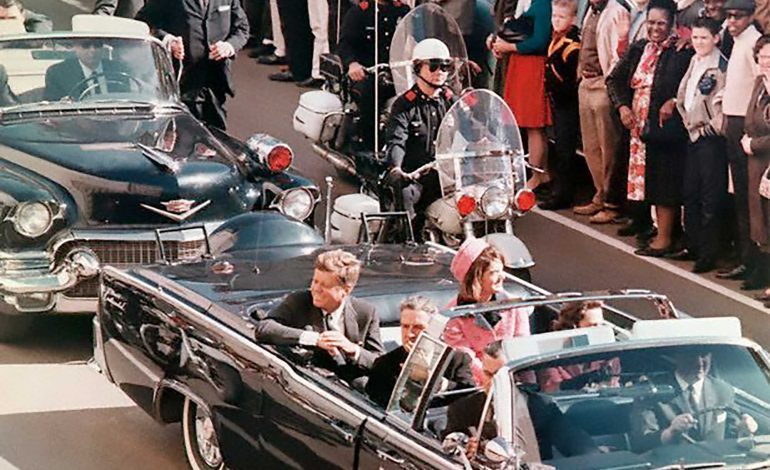
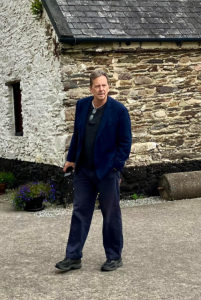
In April 2025, the Trump administration authorized the release of a new set of previously classified documents related to the 1963 assassination of President John F. Kennedy. The disclosure, part of a long-delayed effort to increase transparency surrounding one of the most scrutinized events in American history, added new details to the extensive government record.
The newly released files include FBI reports, CIA communications, and investigative memos that shed light on surveillance efforts, international contacts, and persons of interest at the time, including those with suspected ties to Lee Harvey Oswald.
The assassination of President John F. Kennedy on November 22, 1963, was a pivotal moment in American history and media. Coverage began immediately and unfolded over four intense days of non-stop broadcasting. For the first time, television became the nation’s primary source of news, with iconic moments like CBS anchor Walter Cronkite’s emotional announcement of Kennedy’s death becoming etched into public memory. News networks canceled regular programming and provided continuous updates, culminating in the live broadcast of Kennedy’s funeral, watched by millions.
Print and broadcast journalists covered every angle—from the shooting in Dallas to the arrest and subsequent killing of suspect Lee Harvey Oswald. The press played a crucial role in shaping public perception of the events, and skepticism over the official narrative grew partly from early media contradictions and speculation.
To get a better understanding of the JFK assassination and the media coverage of this tragedy, Wyoming Star spoke with Jefferson Morley, an independent journalist and author. He has written a number of books about the history of the CIA operations and the assassination of John F. Kennedy.
Wyoming Star: Let’s start with a basic timeline of the JFK assassination. The day is November 22, 1963…
Jefferson Morley: So on November 22nd, President Kennedy and First Lady Jackie Kennedy arrive at Love Field airport in Dallas. They start on a motorcade that goes for about 10 miles through the heart of Dallas in front of very large and friendly crowds. At the very end of the route, the motorcade goes through a park-like area called Dealey Plaza. President Kennedy was going on to his next stop, which was lunch at a nearby building. As the motorcade passes through Dealey Plaza, gunfire rings out. The president is wounded, and Texas Governor John Connally, who’s riding next to him in the limousine, is also wounded. Kennedy’s taken to a nearby hospital. Governor Connally survives; President Kennedy succumbs to a gunshot wound to the head.
About 90 minutes later a man is arrested at a nearby movie theater named Lee Harvey Oswald. He’s brought to the jail and is accused of shooting the president from a Texas School Book Depository building where he worked overlooking the motorcade route. Oswald denies that he killed the president. And two days later, when he’s being transferred to another jail, he’s brought out before the TV cameras, and a man steps out of the crowd and shoots him dead. So the president is dead, the accused assassin who denied killing the president is dead, and the man who killed the alleged assassin is Jack Ruby, an organized crime foot soldier who wasn’t really known at the time. Newspaper coverage didn’t talk about it.
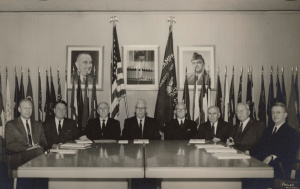
Wyoming Star: If I remember correctly, he was a club owner or something like that…
Jefferson Morley: He owned a nightclub. He lived on the fringes of organized crime and aspired to be an organized crime figure. So when Oswald was dead, President Johnson, the new president, and J. Edgar Hoover, the head of the FBI, both decided that they had to convince the public that Oswald had done it alone.
The investigation of the president’s murder had barely begun; the president hadn’t even been buried yet, and the two most powerful men in the US government basically issued orders saying we have to convince the public that Oswald acted alone.
And so, with those orders in mind, the FBI wrote up a report about three weeks later that said exactly that Oswald did it and he has no known associates. And then Johnson appointed the Warren Commission, a high-level commission of establishment figures in Washington, and ten months later they reached the same conclusion: Oswald had acted alone and killed the president. They couldn’t even find a motive for why it happened. So the official story was one guy killed the president, we don’t know why, and the second guy came along and killed the first guy because he felt like it. That was not a particularly credible story at the time, and its credibility declined over time as people began to learn what the government really knew about the case and what the evidence really said. And so in 1965-66 you have a first wave of Warren Commission critics who are saying the official story wasn’t true. So that’s the beginning of this 60-year story that is still going on.
To speed up the chronology just a little bit, there was an enduring controversy about this, and in 1992 Oliver Stone made a movie called “JFK” depicting the assassination in a very different light and saying, No, the official story that one guy killed the president for no reason is not true, and he presented a scenario where the president was killed by enemies high in his own government. That movie was very popular and very controversial, so Congress passed a law, the JFK Records Act of 1992, and they said the government has to make all of its records public. And it was a pretty good law. It’s a pretty strong law in terms of forcing the government to release records that it didn’t want to release. It created an independent board of people who were not beholden to the government or to the CIA and gave them the authority to obtain, review, and release JFK records. And so in the 1990s we really began to get the first really complete picture of the assassination, not just as it was interpreted by the government and the Warren Commission, but what the records really said and what records were not given to the Warren Commission, which was a lot.
Wyoming Star: But it still took 30 years…
Jefferson Morley: The law said all the government records the law passed in 1992 said all the records had to be made public in 2017, so when 2017 came around, Donald Trump was the president, and the CIA prevailed on him to keep more records secret after the deadline. That was not something that was envisioned by the law. The law said everything should be made public in 25 years without exception or with very few exceptions. But for the CIA and the FBI, very few meant 16,000 different documents, which still had redactions and had to be kept secret. So Trump went along with that, and he said, “We’ll revisit this in four years.” So in 2021 the question came to the president, who is now Joe Biden, and Biden gave the CIA more time. That’s where things stood at the end of the Biden presidency, and President Trump came in and issued an order saying everything has to be made public, finally. Eight years after the deadline, President Trump issued an order, and on March 18th, a lot of new records began to come into public view. These are very important revelatory records. We’re learning a lot about the causes of the assassination right now. Is there a smoking gun? Well, there were 77,000 pages of material released, so it’s not possible to reach any definitive conclusions about such a large body of records even in a month, but there are definitely significant revelations already that we’ve seen from these files, given that this is information that the government has been trying to keep secret the longest and has blown the deadline by 8 years. This is obviously information that the government was very determined to protect and keep out of public view. Now that it’s in part, we have to figure out what it means about the assassination, and that’s what we’re doing.
Wyoming Star: So from my understanding, the recently released documents are mostly about the CIA operations in the 1960s and during the Kennedy presidency.
Jefferson Morley: The records that are now in question, about 80% of them, are from the CIA, maybe, and most of the rest are from the FBI, with a scattering of other federal agencies.
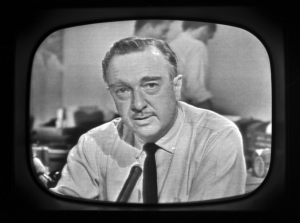
Wyoming Star: Can you describe the media’s immediate reaction to the Kennedy assassination, and how has it changed throughout the years?
Jefferson Morley: In 1963 the press went along with the story that Hoover and Johnson wanted, that this one guy did it alone, and they didn’t really look for any alternative explanation because their government, which they trusted, told them, no, there’s nothing to indicate that he had any help. The problem with that was that the CIA was deceiving the FBI and deceiving the press. The story was this guy came out of nowhere and shot and killed the president. “We just didn’t know anything about him. How could we stop him if we didn’t know anything about him?” And that was a lie that CIA officials told systematically, and it’s a lie that they told under oath repeatedly.
In fact, they knew a whole lot about Lee Harvey Oswald before President Kennedy was killed.
And that fact alone, which was not really understood until the 1990s, changes the whole understanding of the case because the official story that some guy came out of nowhere and killed the president—we now know that story is not true. Okay? He did not come out of nowhere. Lee Harvey Oswald was very well known to top CIA officials at the time President Kennedy was leaving for his trip to Dallas. So that’s kind of the new picture that has emerged in the JFK records in recent years, and these releases that we’re getting now are going to fill out that picture. What was really going on here? Okay, and why were they lying about it? So this is a big breakthrough.
Wyoming Star: How have different conspiracy theories played into the media narrative? Were they dispelled or elevated?
Jefferson Morley: In the beginning the media was very authoritative and determined to push the government story that one man alone did this for no reason. When that theory came under attack, the people who didn’t believe the Warren Commission were described as conspiracy theorists. Now when you say somebody’s a conspiracy theorist, you know it’s a negative thing. And it didn’t really apply to a lot of the people who were critical of the Warren Commission: they didn’t have a theory of conspiracy that killed Kennedy; they just said the government’s evidence doesn’t add up and doesn’t support the conclusion, but they were maligned as conspiracy theorists. And Oliver Stone, when he made his movie, was maligned as a conspiracy theorist. But what we’ve learned over the years is lots of people who were not conspiracy theorists thought the president had been killed by his enemies and did not believe the Warren Commission. And when I say a lot, I mean a lot.
For example, President Johnson, Kennedy’s successor. He appointed the Warren Commission, but he did not believe its conclusion. Lyndon Johnson said at least three times later in life that he believed Kennedy, his predecessor, had been killed by a conspiracy, and a couple of times he speculated to aides that he thought the CIA was involved. That’s the president of the United States, Lyndon Johnson. He’s not a conspiracy theorist; he’s one of the most astute men in American politics.
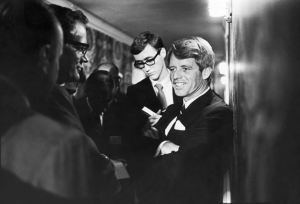
Robert Kennedy, President Kennedy’s brother, never believed the official story, not from the day it happened till the day he died. He always suspected CIA and organized crime figures.
Jackie Kennedy, the closest witness to the crime , died in her arms. She did not believe that the president was killed by one man alone for no reason; she thought he had been killed by his enemies. And she said so, privately.
Other foreign leaders, like Charles de Gaulle, a man who had been both unfriendly and friendly to Kennedy at different points in his career, believed that Kennedy had been killed by enemies in his own government.
President Harry Truman, a month after the assassination, wrote an article in the Washington Post saying the CIA should be abolished. Truman did not mention Kennedy’s assassination in that article, but it obviously was a response to Kennedy’s assassination. Harry Truman’s response to Kennedy’s assassination was that the assassination might well have emanated from the CIA and that’s why it should be abolished.
And I can give you many other examples of people, serious people, high in government, well understanding politics, who thought that something else had happened, and I think that’s what the new evidence shows us. That is indeed what happened; those people were right. The president was ambushed by enemies who made the crime look like something else and made the blame fall on Oswald as a way of covering their own tracks and getting away with it. So that’s what the evidence that we have learned in recent years increasingly shows. Now, I don’t have a conspiracy theory, right? And I’m not an expert in conspiracy law, and I’m not trying to charge any individual with the legal charge of conspiracy…
Wyoming Star: And it’s probably impossible because it’s been over 60 years.
Jefferson Morley: …This is more about my area of expertise in CIA covert operations, how they’re organized, how they’re memorialized, how they’re written about or not written about, and if you look at the Kennedy assassination as the nexus of CIA covert activities, you know there is plenty of evidence that Oswald was followed and monitored and used for political, covert action purposes by senior officials in a way that would be deniable. In a way that they could say, “Oh, we didn’t do it.” That’s the concept of plausible deniability, which is written into all CIA operations.
Wyoming Star: But Oswald had lived in the USSR, and he was probably of interest to the CIA?
Jefferson Morley: He definitely was of interest from the day he went. That’s one of the things that we’ve learned: the big file that the CIA had on Oswald while President Kennedy was alive.
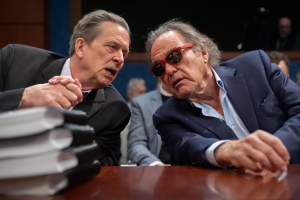
Wyoming Star: You’ve talked before about Oliver Stone and his contribution to this matter, but can you name any other notable books or films or documentaries covering the JFK assassination and their impact on the public’s perception of this tragedy?
Jefferson Morley: There are some very good ones. I would highly recommend the podcast series by Rob Reiner and Soledad O’Brien called “Who Killed JFK.” It came out two years ago, and it’s really one of the most up-to-date treatments of new records that have been released, the latest research, and the old research kind of synthesized, and in general, I find it’s an excellent presentation of the story. If anybody wants to learn the JFK story in depth, I recommend that podcast.
There are a number of really good books about the assassination. One that I think is particularly interesting is called “Brothers” by David Talbot. It’s the story of what Robert Kennedy really thought about his brother’s murder. Publicly, of course, he endorsed the Warren Commission. Privately, as I said, he never believed it, not for a second. So what did he think? Well, David Talbot went out and interviewed a couple of hundred people in the Kennedy circle and in the CIA circle, and he really uncovered an extraordinary story of what Bobby Kennedy thought and how he was trying to understand the events that led to his brother’s murder and who might be behind it, and it’s a fascinating story. So “Brothers” by David Talbot is probably the first book that I would recommend to people. David’s second book, “The Devil’s Chessboard,” is a biography of CIA director Alan Dulles. And it’s also an excellent presentation of the power of the CIA in mid-20th-century America. I can recommend both those books highly.
Wyoming Star: How do you assess the internet and social media’s output into popularizing the JFK assassination research, and was it an overall net positive or net negative?
Jefferson Morley: When we started to get the complete record of the assassination for the first time in the 1990s, key to that was that it was put on the internet so that people could study the records for themselves and wouldn’t even have to come to Washington. So the Mary Ferrell Foundation, which I’m associated with and is a center of JFK research, started putting JFK records online in the late 1990s and now hosts the largest collection of JFK assassination records on the internet. That’s where the story of the assassination is most accessible. We don’t have the entire JFK collection on there, which is a couple of million pages, but we probably have a million pages. That’s been incredibly valuable because now anybody can look at that. I can compare my notes with other researchers, and we don’t have to go through the gatekeepers of a government report or a major news organization. We can do it by ourselves. The major news organizations aren’t really interested in this material, so researchers have had to do it. So the internet’s input is very positive. And in general, internet technology allows for the rapid searching and sorting of documents. We can do research at a speed that was impossible when I started. You’re going through boxes file by file, a very slow and tedious process to really master the record. Now we can do a targeted search, and I can get any record. So this technology is a big help.
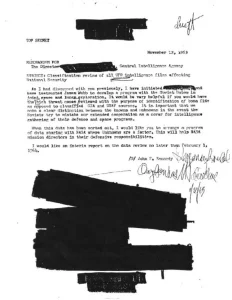
Social media, to me, provides very little added value to JFK research. The conversations are mostly inane. The people who are commenting are not very well informed. There are some well-informed people who try, but the noise-to-signal level is very high. And you know the assassination memes, like President Kennedy was killed because of what he thought about UFOs, are very popular on the internet with basically next to no evidence to support it. So the social media effect is not positive. I mean, it enables us to talk about it, but the debates on social media are pretty vicious and pretty stupid. And I participate in them, so I’m not blaming people; it’s the form, it’s the nature—it turns us all into raving idiots, you know…
Wyoming Star: It’s called “Bloodspots” for a reason.
Jefferson Morley: And then it just makes money for Elon Musk. So no, social media is not a positive influence.
Wyoming Star: We’ve talked about the declassification attempts, and what is the political value of declassifying the JFK files?
Jefferson Morley: I think that’s why Trump jumped on this—because it’s a popular issue. I mean, who would be opposed to it, right? It’s the murder of a president. So I think Trump got on it because it is popular and it could get him political points. In terms of the functioning of a democracy, which I don’t think Trump really cares about. Full disclosure and accountability. A government is changed by political violence. How did that happen? That’s a very important issue, and that’s why it matters. That’s why people are paying attention to it. And so I think that declassification can be kind of a political message tool, which is basically what Trump is using it for. But it can also be a principle of good government, which is that the government should be transparent if it’s going to enjoy our trust. And we have to trust the government because we pay our taxes to them; we have to feel that it’s under our control. Accountability is key to that. And JFK is the original example of where there was no accountability and people don’t trust the government, and they come up with a lot of conspiracy theories, so the solution for that is for the government to be transparent and to earn people’s trust. That’s the importance of declassification.
Wyoming Star: Are there any documents left that can, like, help us to better understand the situation surrounding the assassination?
Jefferson Morley: Thousands. What has been released are the JFK records that the federal agencies had turned over to the National Archives since the mid-1990s. That’s not all the JFK records in the world. We know of the existence of other JFK records that are held by the CIA and FBI that are related to the assassination that have never been sent to the National Archives. So while the president’s executive order has led to a good start, there’s a long way to go because there are other documents that have not been turned over. And frankly, I don’t see any sign that the CIA wants to turn them over.
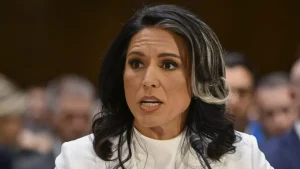
Tulsi Gabbard announced today (04/18/2025) the release of the RFK assassination record, so I think there are people in the administration who are pressing for the release of this material and are searching for new material, which is a good sign. You need outsiders to come in because the agencies are never going to release anything on their own that’s going to embarrass them, so there are more records to be obtained.
We’ve made a lot of progress, but we’re still not done.
Wyoming Star: How do you assess the media’s general handling of the matter? Was it a bit too reluctant to cover the JFK assassination when it was happening? Was it a bit too weak on the pushback for the Warren Commission? Was it too skeptical of the different alternative versions of this event?
Jefferson Morley: There are two different reactions out there in the media universe right now: what I call the “establishment media, legacy media, and elite media” are still wedded to the official story and are very dismissive, saying, “Oh, there’s nothing in these records.” They said that before they’d even read the records, which tells you that they’re not interested in them. They don’t need the facts in the records to come to their conclusion. Well, some of us have a different standard. We’re not going to draw a conclusion until we have the facts. Among conservative media, I think there’s been a lot of interest, I think because President Trump is advancing this and people who are supporters of the president link to this as something positive that he’s doing. There’s been a lot of interest that way and some from the liberal press. More so from leftist, anti-imperialist, anti-war sites, maybe more than from sort of mainstream democratic sites.
Wyoming Star: And it’s probably about holding the CIA accountable. If the conservative media is more about Trump’s populism, for the liberal media it’s like…
Jefferson Morley: Yeah, let’s beat up the CIA. So there’s a lot more interest from conservative media than from establishment media, but I mean, I’ll tell you the main thing is there is a lot of interest, period. And that’s not defined by partisan politics. This isn’t like something only right-wing people or left-wing people are interested in. In my JFK Facts Substack, which has about 20,000 subscribers now, we’ve got a very diverse audience with MAGA people, conservative Trump supporters, a lot of people who were supporters of RFK Jr. when he was running for president and who I wouldn’t say are pro-Trump but pro-RFK Jr. and supportive of his role in the new administration, conservative never-Trumpers, and left liberals, which is more where I’m coming from. There’s interest across the board, and it’s still very strong. And the fact that even anecdotally, from the first day, there were things that were obviously striking, telling us new things about the events of 1963. There’s a lot of interest, and that’s going to continue for sure.
Wyoming Star: Can you assess the impact of the JFK assassination on the public trust for the government, for the CIA, and for different agencies involved in this cover-up?
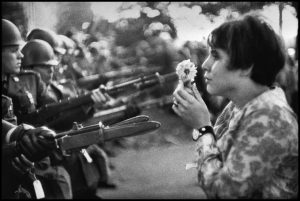
Jefferson Morley: The high point of American confidence in government was the fall of 1964, the month that the Warren Commission report was released, and it’s declined pretty steadily ever since, from the low 70s to the high 20s, basically, so an enormous erosion of faith in government. JFK is not the whole of that by any means. You had the Vietnam War, which the government said we were winning right up to the point when we lost it; the Watergate affair, which showed high-level conspiracies were actually commonplace in the upper ranks of the US government; and you’ve had a systematic assault on the legitimacy of any liberal news organization for the past 30 years to denigrate the very idea of journalism and government. And so that’s had an effect on public trust. But the Kennedy story, because it’s the first of those and because its effects were so profound, is very important. It might be like the original sin. The others followed, but somehow it was that incident and the government’s failure to explain it credibly and then, in the face of criticism, to not change direction and to insist ever more almost obtusely. You know the word “obtuse,” meaning stubbornly ignorant. There’s something about the government’s response to this story and the criticism that is obtuse. It’s like this attitude, “We don’t care about the facts,” you know, “We’re just going to insist on what we believe in.” And that’s very much what makes people suspicious and demoralized, like, come on.
Wyoming Star: It’s relevant today with deportations…
Jefferson Morley: Yeah. And when you talk to people, why are they dissatisfied? You hear this: “Come on, you’re lying to me. I know you’re lying to me,” and sometimes that’s completely wrong. The government might be telling the truth, but it won’t get through, and one of the reasons it doesn’t get through is because the government has stuck so rigidly to this really, frankly, incredible story.
Wyoming Star: With all these files released, can we finally answer the question: who killed President Kennedy, or is it still the question for the future?
Jefferson Morley: I’m an optimist on this question. I think we are going to find out. I mean, I’m not going to say it’s going to happen this week or next, but I think the accumulation of evidence, when it is viewed by the next generation, is going to have a lot more detachment from these events and not be tied into your prestige or your job or the things that affect the people’s judgment. When we can look at the whole thing. When everybody has the whole record, we can look back on it.
I think it’s going to be pretty clear that the president was killed by a faction within his own government.
And I think that there will be evidence and new technologies that will crystallize this new consensus around Kennedy’s assassination, so yeah, I think it’s going to happen.
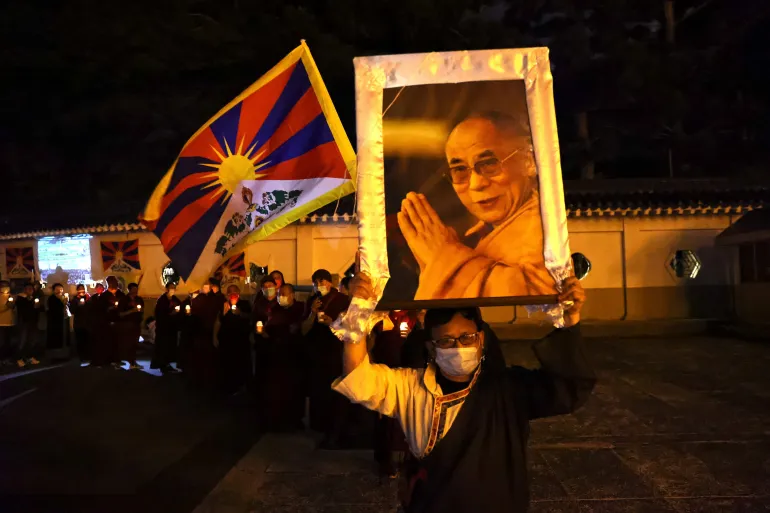
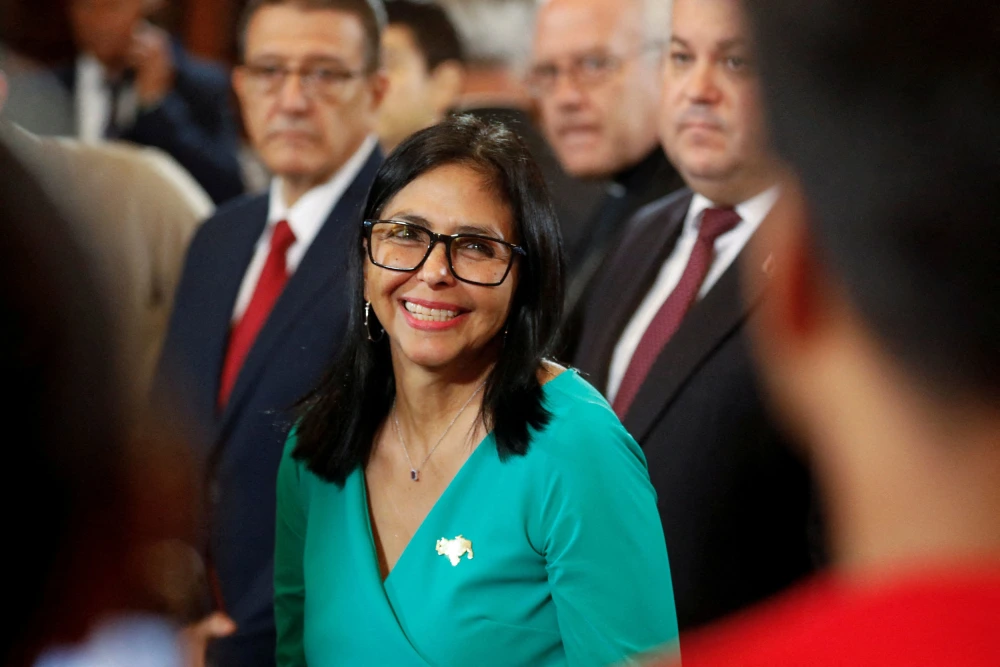
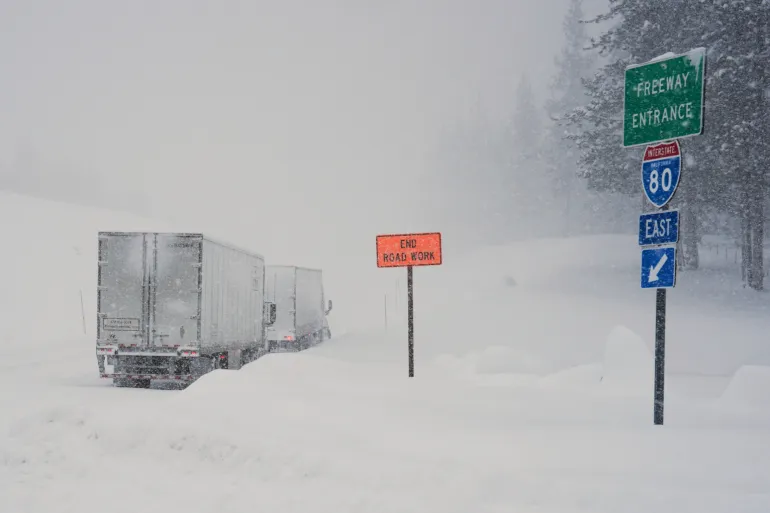
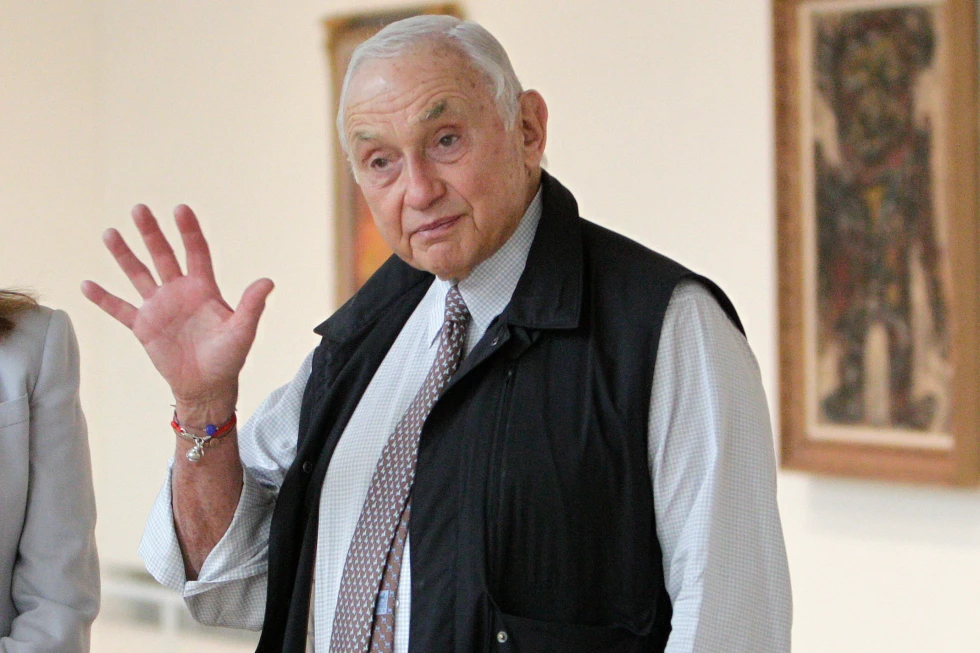
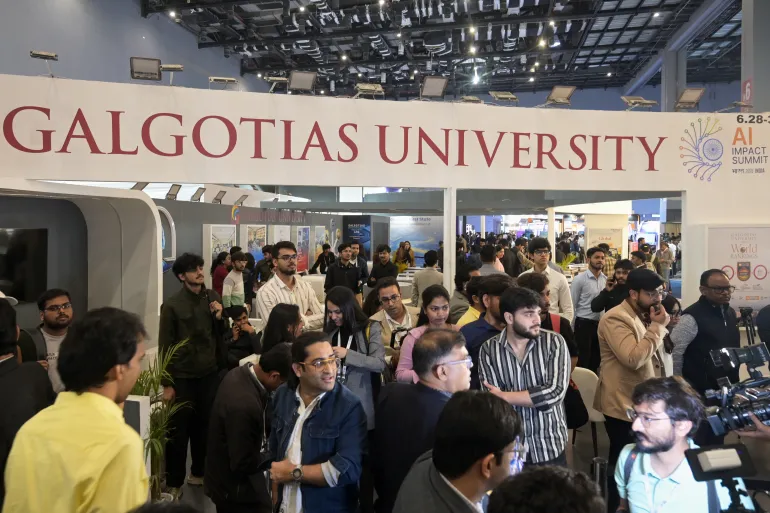




The latest news in your social feeds
Subscribe to our social media platforms to stay tuned